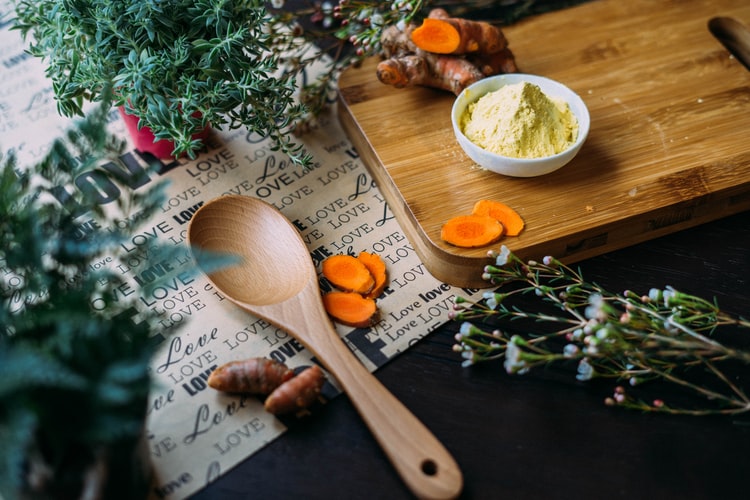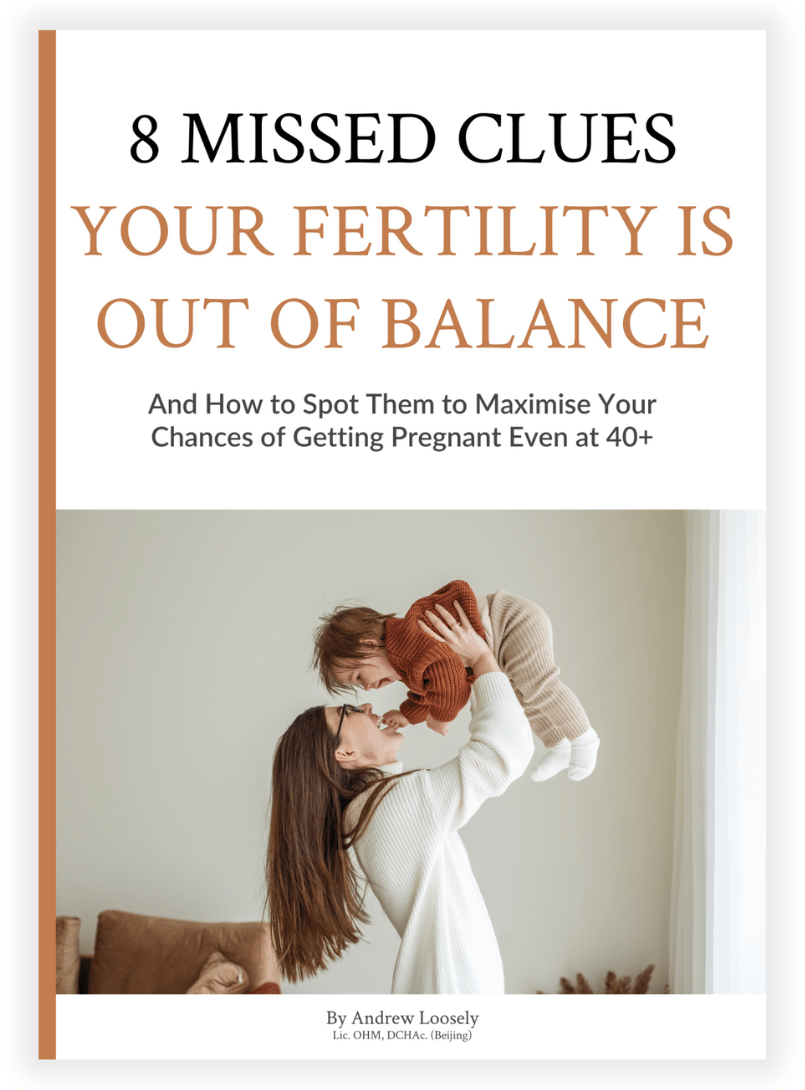Does Turmeric really help menstruation?

With 4000 years of use in India, and the first references of it in Chinese Medicine writings in the 7th Century AD – turmeric has certainly passed the test of time when it comes to understanding its use.
The turmeric plant – Curcuma Longa – is a herb in the ginger family that has multiple health benefits. When it’s dried and ground and used in cooking it’s regarded as a spice.
With over 133 types of Turmeric (1), and each one producing different medicinal effects, how do you decide on the right one for your unique health presentation?
People regularly ask me if turmeric will help increase blood flow to the uterus, to ease pain and increase menstrual flow.
My answer?
Yes it will. But the success will depend on the type of turmeric you use!
And the type of turmeric you use will depend on what the root cause of your blood flow issues are.
Classical Chinese Medicine first mentions yellow turmeric in 659 AD (2) for treating circulatory issues. Over time it was recognised that there are varying forms of turmeric, each with different medicinal effects.
Out of the many variations there are 3 common medicinally used forms of turmeric as follows:
- Curcuma Longa Rhizome (the common yellow turmeric) – called Jiang Huang in Chinese Medicine
- Curcuma Longa Root – called Yu Jin in Chinese Medicine
- Curcuma Zedoaria – called E-Zhu in Chinese Medicine
Each of these has a different effect on circulation and should be used for different presentations. Here’s an overview:
- Jiang Huang will treat pain that relates to coldness in the lower half of the body. Coldness (a concept in Chinese medicine) is a common cause of menstrual pain and reduced blood flow. If you have signs of Coldness, Yang Deficiency, Blood Deficiency, Qi Stagnation or mild Blood Stagnation then this type of turmeric may suit you. Typical symptoms of each of these can be found by clicking the links to each of these Chinese medicine conditions. If you have more severe pain and a diagnosis, or symptoms, relating to stronger Blood Stagnation then this version of turmeric may not be sufficient.
- Yu Jin will treat more severe conditions relating to more severe Blood Stagnation that is often present in conditions such as: Endometriosis, Fibroids and Cystic issues when they are mild presentations. Yu Jin, like Jiang Huang, is warming and so not suitable when there is Yin Deficiency. Do not self-prescribe this herb. Use it only under the guidance of an experienced herbalist. See Cautions below.
- E-Zhu is a very strong form of turmeric and has different qualities to the other two forms above. This herb clears heat and strongly circulates the blood to break and remove physical obstructions. This is often used when people have more severe presentations of: Endometriosis (levels 3+4), Fibroids, Blocked Fallopian Tubes and Cystic issues. Do not self-prescribe this herb. Use it only under the guidance of an experienced herbalist. See Cautions below.
Taking Turmeric when you don’t need it, or using the wrong type may cause overstimulation of the blood – creating complications to your fertility health – so some caution is needed.
I don’t recommend using extracts such as curcumin as this does not contain all of the active components of turmeric. It’s best to use the natural form, and choose the right type for your health.
To increase menstrual flow and circulation we need to circulate or ‘move’ the blood in the lower part of the body – particularly through the uterus and reproductive organs.
Before we start treating blood circulation it’s vital to know what the cause of the reduced blood flow is, as there are multiple causes as listed above. Knowing the cause will help in choosing the right and best treatment, that produces the quickest and safest results.
The effects of curcumin (one of the many active components in Turmeric) are being reviewed in clinical trials with interesting results.
In 2015 a trial was conducted where 70 women suffering from PMS were given curcumin as an extract from Turmeric (unclear which form), before and after menstruation.
The results showed a significant reduction in PMS symptoms in those who received the curcumin treatment (3).
This is interesting and in alignment with the facts I’ve mentioned above about its traditional and historical medicinal use in Asia.
CHINESE FERTILITY MEDICINE USE IT TO:
- Treat Blood Stagnation
- Treat Qi Stagnation
BLOOD STAGNATION:
Blood Stagnation refers to poor circulation of blood throughout the body.
This can manifest in any aspect of the body but is prevalent in many male fertility and also gynecological issues.
There are 2 main causes of Blood Stagnation:
- A genetic clotting disorder that directly causes the blood to clot more easily
- A Blood Deficiency pattern where the blood is weaker and cannot flow efficiently, causing it to become stagnant
Healthy Blood flow is vital to nourishing all the cells in your body, which include egg and sperm cells.
If blood flow reduces it may cause male and female fertility issues that typically present with either an obstruction in the flow of blood or fluids, or the development of a growth or mass.
Click here to read more about Blood Stagnation:](/blood-stagnation/)
QI STAGNATION:
Qi (pronounced chee) is the Chinese Fertility Medicine word used to describe energy, life force, or vitality inside and outside the body.
Qi must always flow efficiently through the body to properly support the thousands of functions required of the organs and systems every day.
If the flow of Qi slows down it is regarded as being a Qi Stagnation pattern.
This typically results in a variety of symptoms that can lead to stress, mood changes, hormonal imbalance, and other functional symptoms reflecting a lack of circulation in the body.
All of these have the ability to affect your fertility health as the regulation and ‘switching’ of hormones, fluids, energy, blood require a smooth and constant flow of energy to work properly.
Click here to read more about Qi Stagnation:
Key nutrients are:
Vitamin B6: Pyridoxine is involved in breaking many types of chemical bonds and is a component of many enzymes – which are involved in breaking down foods and substances, and also regulating steroid hormones.
Vitamin B3: Niacin as with most other B vitamins is involved in energy production within the mitochondria of your cells (the powerhouse of the cell). Pregnancy requires good levels of niacin, as does breast feeding.
Vitamin C: For fertility health Vitamin C is important in the process of absorption and also in its ability to support the luteal phase of the menstrual cycle.
Vitamin A: Is necessary for the growth and repair of many body cells including bones, teeth, collagen and cartilage. It’s also involved in cell differentiation where cells become specific types of cells such as a liver cell or a blood cell. This is vital for the development of your healthy baby. Supplementation does not offer balanced forms of Vitamin A.
Calcium: Calcium is needed to build and maintain strong bones, support heart health, and for optimal function of the muscles and nerves. It is also required alongside Vitamin D to aid in its use throughout the body.
Iron: Is a mineral that the body uses to carry oxygen in the blood and plays a key role in strengthening the immune system and helps regulate body temperature.
Manganese: Is a naturally occurring mineral which aids in the formation of connective tissue, bones, blood-clotting factors, and sex hormones.
Potassium: Is an electrolyte which counteracts the effects of sodium, helping to maintain consistent blood pressure levels – another important element for pregnancy.
Zinc: Zinc is essential for the repair and function of DNA, which affects sperm and egg quality. It’s also essential for the rapid growth of cells and the building of major parts of cells during a pregnancy. The development and enzyme activity that takes place during pregnancy is supported by zinc, which means that this is one of the most important nutrients for babies and mothers.
Season Available: All year as medicine.
How it’s typically cooked: In tea or food form for Jiang Huang. In medicinal tea form for Yu Jin and E-Zhu.
Cautions:
Very Important Note – All forms of Turmeric circulate or ‘move’ the Blood. This is a high-risk factor when pregnant.
I strongly advise against the use of any form of turmeric whilst pregnant, unless under the expert guidance of a Classical Chinese Medicine Fertility Specialist or other herbalists. Circulating the blood during pregnancy is linked with high risks of miscarriage.
As this herb is an anticoagulant it should not be used with any blood-thinning medication unless under expert herbal medicine guidance.
References:
(1). Herbal Medicine: Biomolecular and Clinical Aspects. 2nd edition, 2011. Editors: Benzie IFF, Wachtel-Galor S.
(2). Tang Materia Medica (Tang Ben Cao), by Sū Jing. 659 AD
(3). Curcumin attenuates the severity of premenstrual syndrome symptoms. 2015 Jun;23(3):318-24. doi: 10.1016/j.ctim.2015.04.001. Epub 2015 Apr 9.
Disclaimer: https://naturalfertilityexpert.com/disclaimer/
Need more help?

Free Guide
8 MISSED CLUES YOUR FERTILITY IS OUT OF BALANCE – even if you’re over 40
Discover What’s Stopping You Having Your Baby
8 MISSED CLUES YOUR FERTILITY IS OUT OF BALANCE – even if you’re over 40
If you’re 40 or over and pregnancy isn’t happening for you naturally, or with IVF, then this guide will help you discover why being 40+ isn’t a barrier to having a baby – as long as you identify the root cause of your fertility issues and then bring your body back into balance.